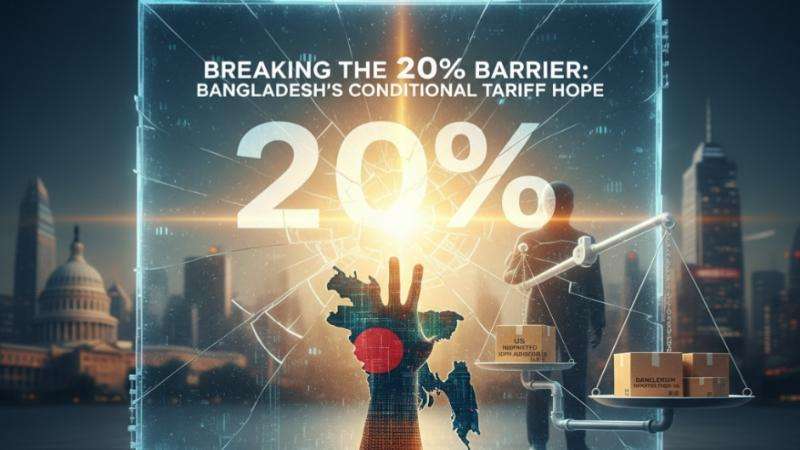Civil Service Hypocrisy: Whitehall Spends 626,000 to Fly In Hundreds of Foreign Staff Despite Pledge to Cut Migration-Ministers are currently flying in hundreds of foreign staff to occupy roles within the UK Civil Service, a move that starkly contradicts the political consensus, including a key pledge by Sir Keir Starmer, to aggressively cut net migration, Daily Dazzling Dawn understands.
In the last year alone, Whitehall departments sponsored at least 400 Skilled Worker visas for foreign employees, paying \text{\textsterling}626,000 in fees to facilitate their employment in the UK. This spending comes at a time when the Civil Service is near a modern peak, with a total headcount of 549,660 as of March 2025.
The foreign staff, who must earn the post-reform minimum salary of over \text{\textsterling}41,700 a year or the "going rate" for their position, have been recruited by major government machinery, including the Department for Work and Pensions (DWP), Department for Transport (DfT), Department for Business and Trade (DBT), and the Cabinet Office. The DWP stands as the most reliant department, sponsoring 316 people at a direct cost of \text{\textsterling}458,000. Ironically, these visa fees are funneled into a national fund intended to train British workers to fill domestic skills gaps.
Nationality, Shortages, and Public Empathy-While specific national origins of the 400 sponsored staff are not publicly itemised, the Civil Service Nationality Rules mandate that most civil servants must be nationals of the UK, the Republic of Ireland, or a Commonwealth country. Certain EEA, Swiss, and Turkish nationals are also eligible. The jobs for which sponsorship is granted are specialist roles the government has deemed impossible to fill with sufficient domestic workers, thus allowing them to circumvent the general principle of prioritising British labour.
For the hundreds of foreign staff who take these roles, the ability to secure a job in the Civil Service is predicated on a domestic skills failure. If there were a readily available pool of qualified British workers for these specialised positions—which include highly technical, digital, or analytical roles—the overseas workers would not be able to obtain the necessary visa sponsorship. This situation underscores a profound failure in UK workforce planning, which compels departments to recruit internationally while simultaneously funding initiatives to train domestic talent.
However, the recruitment drive has ignited public fury over efficiency and security. "The Civil Service is already overstaffed and inefficient. Why do they need yet more staff? If they must recruit more, why not do it from the millions here who aren't working?" asked a concerned commentator, Queen B. Another, Nik Gibson, voiced a deeper concern: "This sums up what is wrong with country, we aren't in charge. Security must be under threat."
The Coming Immigration Squeeze and The Path to Settlement-The revelation of in-house government recruitment of foreign staff clashes directly with the tougher immigration environment being championed by Sir Keir Starmer.
In response to the political threat posed by Reform UK—which is polling strongly and has pledged to scrap indefinite leave to remain—Labour’s proposed Immigration White Paper (published May 2025) outlines several measures to drastically reduce legal migration and limit the path to settlement:
Increased Costs for Employers: The current government is already planning a 32% hike in the Immigration Skills Charge, forcing medium and large companies to pay £1,320 annually per sponsored worker, up from £1,000. This is designed to make foreign recruitment less attractive than investing in domestic workers.
Higher Skills Threshold: Sir Keir has promised to raise the education threshold for skilled workers to require a university degree, unless the job is on a newly constrained "temporary shortage" list.
Doubling the Settlement Period:
One of the most significant proposed changes is to increase the qualifying period for permanent settlement (Indefinite Leave to Remain) from five years to ten for work-related migrants. This would significantly increase the financial and personal burden on the very workers the Civil Service is currently hiring.
Sir Keir has insisted these measures are necessary to bring legal migration "back into control," aiming for a "selective" and "fair" system where "we decide who comes to this country."
What is next is a tightening of the screws across the immigration system, creating profound uncertainty for both government departments and the sponsored staff. Departments that declined to disclose their foreign staff numbers, such as the Ministry of Justice and the Department for Science, Innovation and Technology, will face increasing pressure to justify their recruitment practices. As the new, higher salary thresholds and reduced eligible job lists take effect, government departments will be forced to conduct internal audits, potentially facing a talent drain if they cannot meet the new, more expensive salary requirements for their existing foreign employees. The overarching message is clear: while Whitehall demands specialist foreign labour to fill its immediate needs, it is simultaneously helping to legislate a much harder, longer, and more costly journey for those same workers to make the UK their permanent home.



_3.jpg)
_4.jpg)


.svg)
